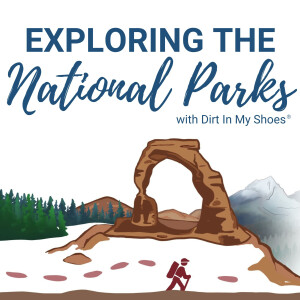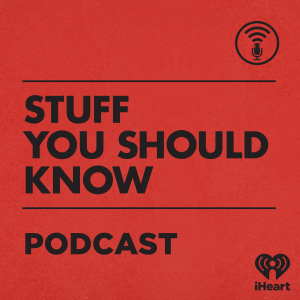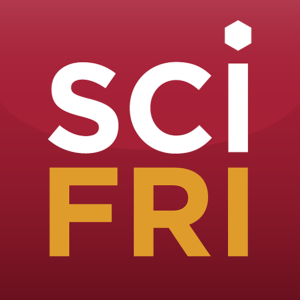
Scientists have long thought that when two animals from two different species mate, it’s a colossal error and the end of the road for the mismatched couple. It’s called interspecies breeding, and many hybrid offspring often end up sterile, such as zonkeys —a cross between a zebra and donkey. Or they can develop serious health problems, like ligers and tigons.
One biologist even went as far to call interspecies breeding “the grossest blunder in sexual preference.” But is breeding across species lines always a dead end? One critter —the plains spadefoot toad—shows us that maybe it isn’t. In fact, it can give them a leg up in survival.
Katherine Wu, staff writer for The Atlantic, talks with Ira about the complicated sex lives of the female plains spadefoot toads, the trade-offs females make when choosing a mate, and why hybridizing critters may not be such a biological abomination after all.
Major Semiconductor Support Bill Passes First Hurdle
Earlier this week, the Senate voted in favor of the Creating Helpful Incentives to Produce Semiconductors (CHIPS) for America Act. If passed, the bill would provide more than $50 billion to companies that will build semiconductor factories here in the United States. Semiconductors are versatile materials—such as silicon—often used in electronics and in microchips. But the bulk of semiconductors, known as “chips,” are produced in other countries, mostly Taiwan. If the CHIPS Act is passed, the government will fund tech companies to build factories at home instead. Although the bill still has to go through the House and be signed by President Biden, this Senate vote is still a monumental moment in the tech world.
Jesús del Alamo, a professor of electrical engineering at MIT, joins Ira to talk about why this bill is such a big deal, and what’s at stake.
Drought Could Raise Toxic Dust Around Utah’s Great Salt Lake
Utah’s Great Salt Lake holds a unique ecological niche as the western hemisphere’s largest saltwater lake. The body of water is three to five times saltier than the ocean, with salinity ranging between 12 and 28 percent. According to the Great Salt Lake Institute, millions of birds from more than 250 species rely on the lake yearly, alongside a diverse variety of plants and animals.
Like many bodies of water in the U.S., climate change is affecting the status quo in the Great Salt Lake. The water is drying up at an alarming rate, reaching its lowest level in recorded history this month. Now, researchers warn that toxic dust could increase as water levels continue to drop.
Joining Ira to discuss the Great Salt Lake’s ecosystem and future is Bonnie Baxter, director of the Great Salt Lake Institute and biology professor at Westminster College in Salt Lake City, Utah.
A Flaw in Human Judgment: How Making Decisions Isn’t As Objective As You Think
If two people are presented with the same set of facts, they will often draw different conclusions. For example, judges often dole out different sentences for the same case, which can lead to an unjust system. This unwanted variability in judgments in which we expect uniformity is what psychologist Daniel Kahneman calls “noise.”
The importance of thoughtful decision-making has come in stark relief during the pandemic and in the events leading up to the January 6th insurrection.
Ira talks with Nobel Prize-winning psychologist Daniel Kahneman about the role of ‘noise’ in human judgment, his long career studying cognitive biases, and how systematic decision-making can result in fewer errors.
Kahneman is the co-author of “Noise: A Flaw in Human Judgment,” along with Oliver Sibony and Cass R. Sunstein, now available in paperback.
Transcripts for each segment will be available the week after the show airs on sciencefriday.com.
More Episodes
627: A Mathematician Asks ‘Is Math Real?’
 2023-10-17
2023-10-17
628: The mRNA Vaccine Revolution
 2023-10-16
2023-10-16
626: Ancient Human Footprints & 'Ring Of Fire' Eclipse
 2023-10-13
2023-10-13
623: Saltwater Wedge In The Mississippi & Kenya's Geothermal Boom
 2023-10-12
2023-10-12
625: How Artists And Scientists Collaborated To Make Art About HIV
 2023-10-11
2023-10-11
622: Full-Body MRIs Promise To Detect Disease Early. Do They Work?
 2023-10-10
2023-10-10
623: Meet The Doctor Who Solves Medical Mysteries
 2023-10-09
2023-10-09
624: mRNA Research Wins Nobel Prize & Lightning On Venus
 2023-10-06
2023-10-06
621: Placebo Effect, Technoableism, Florida Citrus, Neuroscience Music. Sept 29, 2023, Part 2
 2023-09-29
2023-09-29
620: Vision and the Brain, Jellypalooza. Sept 29, 2023, Part 1
 2023-09-29
2023-09-29
619: Ocean Climate Solutions, Florida Corals, Climate Video Games. Sept 22, 2023, Part 2
 2023-09-22
2023-09-22
618: Our Fragile Moment, Climate Comedy. Sept 22, 2023, Part 1
 2023-09-22
2023-09-22
617: New Covid Vaccine, Moroccan Earthquake, Native Bees. Sept 15, 2023, Part 2
 2023-09-15
2023-09-15
616: Radioactive Wildlife, Bus Stop Heat, Football Jersey Numbers. Sept 15, 2023, Part 1
 2023-09-15
2023-09-15
615: Tree Soil, Rodent Biologist, Soundscape Artist. Sept 8, 2023, Part 2
 2023-09-08
2023-09-08
614: Embryo Model, Sweat, Whale Vocal Fry. September 8, 2023, Part 1
 2023-09-08
2023-09-08
613: An AI for Smell, Heat and Agricultural Workers, Golden Lion Tamarin, Y Chromosome. Sept 1, 2023, Part 2
 2023-09-01
2023-09-01
612: US Surgeon General On Mental Health, Tracking Tick Bites. Sept 1, 2023, Part 1
 2023-09-01
2023-09-01
611: Old Things Considered: La Brea, Megalodon, Dino Footprints, Surviving History. Aug 25, 2023, Part 2
 2023-08-25
2023-08-25
610: Sea Otters, Alaskan Minerals, Salmon Restoration. Aug 25, 2023, Part 1
 2023-08-25
2023-08-25
Create your
podcast in
minutes
- Full-featured podcast site
- Unlimited storage and bandwidth
- Comprehensive podcast stats
- Distribute to Apple Podcasts, Spotify, and more
- Make money with your podcast
It is Free
You may also like

Exploring the National Parks


The Covert Narcissism Podcast


Greece Travel Secrets Podcast


Stuff You Should Know


Timcast IRL

- Privacy Policy
- Cookie Policy
- Terms of Use
- Consent Preferences
- Copyright © 2015-2024 Podbean.com



 iOS
iOS Android
Android